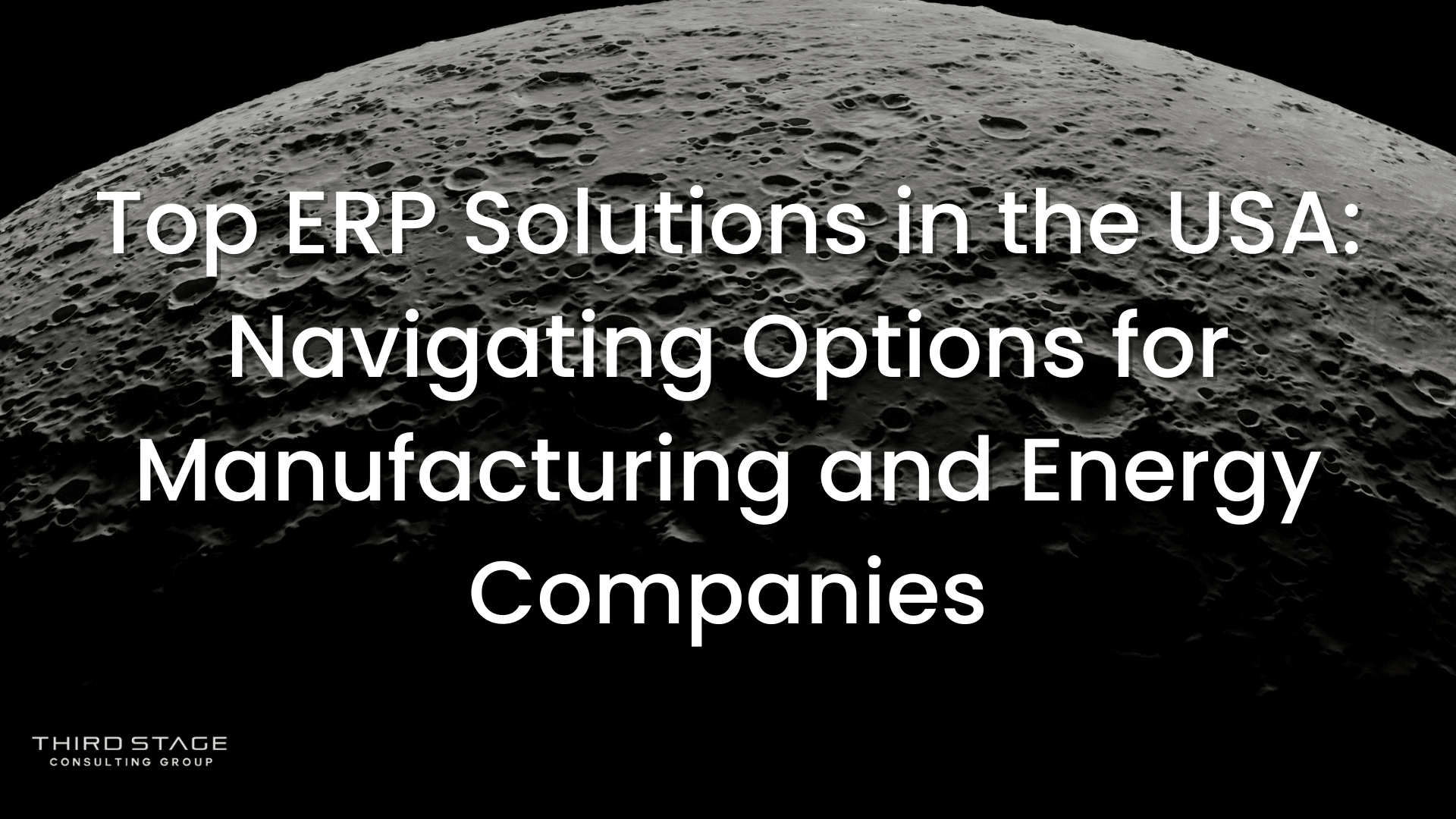When evaluating ERP (Enterprise Resource Planning) systems in the USA, one of the most common questions is: What is the top ERP solution for manufacturing companies and energy companies? The answer, however, isn’t one-size-fits-all—it largely depends on the specific needs and challenges of each industry. In this blog post, we’ll break down the differences, highlight key ERP players, and discuss how to choose the right system for your organization.
Table of Contents
ToggleERP Solution for Manufacturing: A Legacy of Innovation
A Brief History: From MRP to ERP
ERP systems have their roots in manufacturing. In the 1980s, manufacturers relied on MRP (Material Resource Planning) to coordinate procurement, production, and inventory management. As businesses grew more complex, MRP evolved into modern ERP systems, integrating various processes across the enterprise to enhance efficiency and decision-making.
Key Players and Options
For manufacturers, the ERP landscape is vast, with solutions ranging from global giants to niche-specific systems:
- Big Three Systems:
- SAP, Oracle, and Microsoft are dominant players. These systems are robust and can handle the complex needs of large-scale manufacturing operations.
- Tier 2 and Tier 3 Solutions:
- Companies that require more tailored functionality or have smaller scale operations often turn to niche solutions. Examples include Epicor, Infor, DCOM, and Acumatica.
- Industry-Specific Systems:
- For certain manufacturing sectors, specialized ERP systems can offer more focused functionality. For instance:
- Food Manufacturing: Solutions like JustFood (built on the Microsoft Dynamics platform) provide features specifically designed for food processing, safety, and compliance.
- Automotive Manufacturing: Systems like Plex Systems cater to the unique needs of automotive production, including quality management and supply chain integration.
- For certain manufacturing sectors, specialized ERP systems can offer more focused functionality. For instance:
Why Manufacturers Love ERP
Manufacturing ERP systems are designed to integrate key functions—from procurement and production to inventory and logistics—providing a seamless flow of information. This integration not only improves operational efficiency but also offers greater visibility into production processes, helping companies to make informed, strategic decisions.
ERP Solution for Energy Companies: A Complex Landscape
The Unique Challenges of the Energy Sector
Unlike manufacturing, the energy industry—comprising energy producers, utilities, and asset-heavy companies—faces a broader array of challenges that go beyond traditional ERP capabilities. Energy companies require robust solutions to manage not just their financials and operations but also complex tasks such as:
- Enterprise Asset Management (EAM):
Systems must effectively track and manage a wide array of physical assets, from power plants to transmission lines. - Mobile Workforce Management:
With assets spread across vast geographic areas, energy companies often rely on ERP systems that integrate with mobile solutions to support field service operations. - Integration with Specialized Technologies:
Energy providers typically need to integrate ERP systems with technologies like GIS (geographic information systems) for geospatial tracking, outage management tools, and other specialized software.
Leading ERP Systems in the Energy Sector
- Global ERP Leaders:
- SAP and Oracle are prominent in the energy space, offering robust ERP solutions that can be extended with additional modules for asset management and field operations.
- Specialized Solutions:
- IFS is known for its strong focus on enterprise asset management, making it a popular choice for energy companies.
- Maximo: Widely used in the energy industry, this solution is particularly effective in managing and maintaining infrastructure assets.
Why Energy Companies Need More Than One Solution
Given the diverse requirements—ranging from financial management to asset tracking and mobile workforce management—it’s uncommon for an energy company to rely on a single ERP system. Instead, many organizations opt for a hybrid approach, integrating core ERP systems with specialized tools that address unique operational needs. This layered strategy helps energy companies handle the complexities of managing both their digital and physical assets.
Choosing the Right ERP Solution:
Understand Your Industry Needs
Before choosing an ERP system, it’s essential to assess the specific requirements of your business:
- For Manufacturing:
Consider the scale of operations, the need for specialized modules (e.g., food processing, automotive manufacturing), and integration with existing systems. - For Energy Companies:
Evaluate your asset management needs, the complexity of your field operations, and the degree to which your ERP system needs to integrate with other specialized technologies.
Evaluate Scalability and Flexibility
As your business grows, your ERP system should be able to adapt. Look for solutions that offer scalable features and can evolve alongside your organizational needs. This is especially important in industries undergoing rapid technological changes and regulatory shifts.
Consider Vendor Expertise and Support
Partnering with a vendor who understands your industry can make all the difference. Whether you’re in manufacturing or energy, ensure that your chosen ERP provider has a proven track record and offers robust support, from implementation through ongoing operations.
Conclusion
There is no single “best” ERP system that fits every manufacturing or energy company. Instead, the top choice depends on your industry’s specific requirements, the scale of your operations, and your long-term strategic goals. For manufacturers, a range of options—from industry giants like SAP, Oracle, and Microsoft to niche solutions like Epicor or Plex—ensure that every production need can be met. For energy companies, the challenge lies in addressing diverse needs that span beyond traditional ERP functionality, often requiring a hybrid solution that integrates core ERP capabilities with specialized tools like asset management and GIS systems.
By carefully evaluating your company’s needs and considering both the technical and operational challenges unique to your industry, you can make an informed decision that sets your organization up for long-term success.





